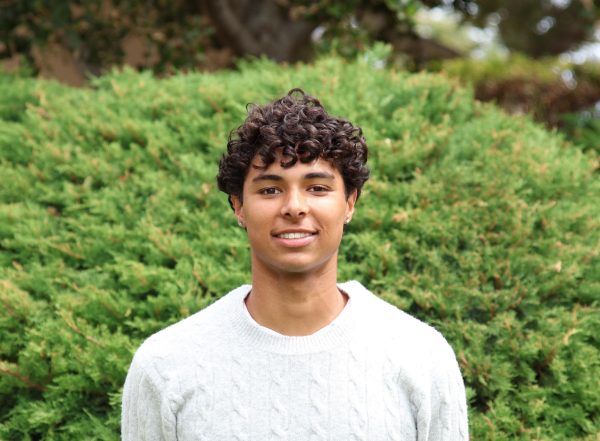In celebration of February’s Black History Month, the Black Student Union and ASB will host events including guest speakers, a multicultural day, a Mardi Gras celebration and a PRIME to learn about historic Black figures.
Carter Blair, president of the BSU, said the club has planned several new events throughout the month.
“We plan on having a second guest speaker later in the month, hosting the San Jose State University step team and having a (historically black college and university) T-shirt day for BSU and Multicultural club members,” Blair said. “Finally, we’re planning a school-wide Mardi Gras celebration with traditional Creole food and decorations.”
Blair said ASB has supported BSU this year by helping fund these events.
“This year, they came to us and made sure that we were aware that if we had an event that could benefit the entire student body, we could very easily receive funding for that,” Blair said. “That’s enabled us to do a lot more than we thought was previously possible given our capacity to fundraise as a club rather than as a school.”
In addition to school events, librarian Sima Thomas said she will arrange several displays to promote Black literature.
“We’ll have book displays and a slideshow display to delve deeper into different pieces of history or promote diversity of stories,” Thomas said. “It feels like the least we could do.”
Yolanda Conaway, Assistant Superintendent and Director of Equity and Student Affairs, said PAUSD also hopes to promote the significance of Black History Month throughout the year.
“Honoring and commemorating the contributions of African Americans in this society is important every month, not just in February,” Conaway said. “We (want to) figure out how to (expose) our community, students and staff to the positive contributions of African Americans and not just the negative stereotypes.”
Conaway said Black History Month also tackles the lack of inclusion, which is exacerbated by how Black history is taught.
Conway said these classes often focus on the setbacks of Africans and African-Americans rather than their accomplishments.
“As a student, the only thing I learned about African-Americans in class was slavery and Jim Crow,” Conaway said. “That was it. No one told me about the triumphs, the innovation, the genius and the creativity.”
Sophomore Eyiloluwasefunmi Ogunlade said she agrees.
“Most of the time (when) we learn about Black history, it’s just about some Black man being prosecuted,” Ogunlade said.
Mary Sano, the instructional leader of the Social Science department, said despite the challenge of accurately educating students on Black history, the department is constantly working toward improving curriculum.
“The teachers in our department are consistently reflective and thoughtful about our task, (which) includes adhering to the state standards, keeping an eye on the larger conversation about teaching history — both nationally and locally — and of course, trying to meet all of our students’ needs,” Sano said. “We have been working on shifting the approach of the way Black history is taught and addressed, and I would welcome the opportunity to continue the conversation that was started last school year between the BSU and our efforts.”
Conaway said part of the 2023 PAUSD Promise reflects “Equity and Excellence,” with an emphasis on the service and celebration of others to build community and diversity.
“(Celebrating Black History Month) falls squarely into the (PAUSD) promise and an element in the promise called our SWIFT plan,” Conaway said.
The Systemwide Integrated Framework for Transformation, or SWIFT, is a plan to advance equity, diversity and inclusion in the district and at Paly where only about 2% of the student population is Black.
Blair said schoolwide observances of Black History Month can be used to mitigate these racial disparities.
“With so few Black students, a lot of people don’t really consider the weight Black history carries,” Blair said. “Having an opportunity to promote it schoolwide gets a lot of people thinking.”
In addition, Conaway said that the small population of Black students should not affect Paly’s celebration of Black History Month.
“It (shouldn’t) make a difference at all whether we had one student or 1,000,” Conaway said. “It’s important not just (for) black students to have exposure to the positive contributions of African Americans, but it’s just as important for white students and students of all cultures to have that experience because otherwise, they walk away with one narrative.”




